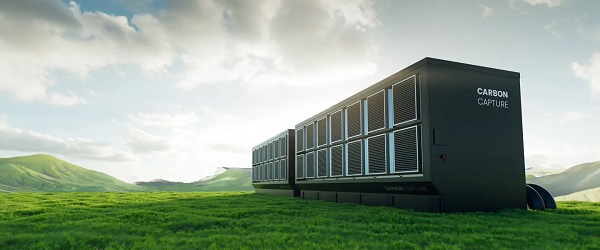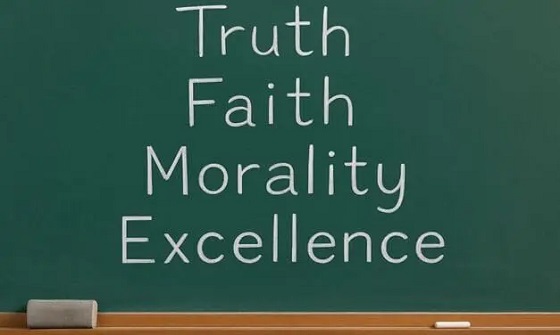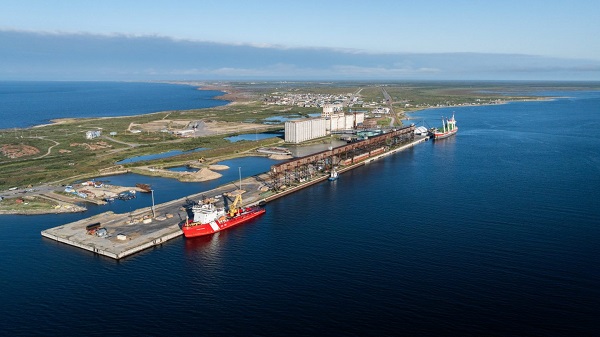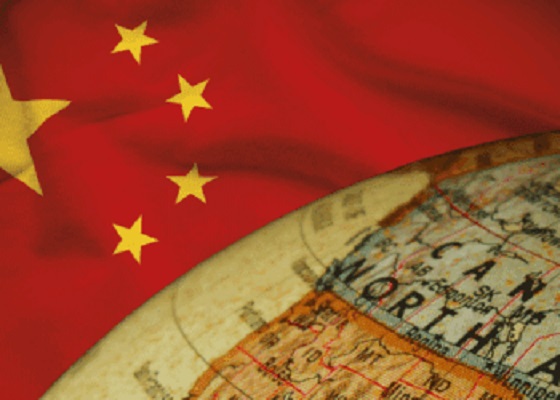Opinion
“US vs THEM” is an increasingly common philosophy today.

Councillor Handley mentioned that there was an atmosphere of “Us vs. Them” at the Westerner in regards to city hall. Partially deemed the reason for the Westerner’s financial plight.
Hospitals and schools seem to have the “Us vs. Them” in regards to the province. Covid-19 brought it to the forefront.
Alberta Premier seems to fan the flames of “Us vs, Them” in regards to Ottawa. Yet Ottawa has been doling money to Alberta in far greater amounts than the province. Pipelines and Covid-19 are 2 examples.
I can continue with all kinds of issues, like Molly Banister recently, the Aquatic Centre to name but 2 more.
With all these protectionist sectors battling each other, the fact that there is only one group of taxpayers paying for all of it, is forgotten.
Susan Delacourt wrote a column on Trumpism which thrived under the “Us vs. Them” political culture.
She included in her column;
“Frank Graves, the EKOS pollster who has been doing an intense study of populism and its potential to surface in Canada, was not feeling complacent at all as the results rolled in from the Nov. 3 vote.
Graves and Michael Valpy wrote a piece on the eve of the vote last week, and the conclusion of that article was a warning and a prediction wrapped up in four words: “Trump is still competitive.”
Quietly, methodically, Graves has been analyzing the component pieces of Trump’s appeal and what feeds the political culture of grievance that the president championed.
Much of Graves’ findings were published earlier this year in a paper for the University of Calgary’s public-policy school — a paper that should be required reading for any Canadians of the “it can’t happen here” way of thinking.
Graves has coined the phrase “ordered populism” to describe the Trump phenomenon and the paper’s summary describes it this way:
“Ordered populism rests on the belief in a corrupt elite, and the idea that power needs to be wrested from this elite and returned to the people. Oriented toward authoritarianism, ordered populism emphasizes obedience, hostility toward outgroups, a desire to turn back the clock to a time of greater order in society, and a search for a strongman type to lead the return to a better time.”
Does that type of politics exist in Canada? It sure does, Graves says, and it’s been on the rise for the past few years. His research says that view is shared by as much as a third of the population and its ascent is accompanied by increases in polarization, inequality and a decline in the middle class.”
The fact that we don’t have a true “Trump” populist strongman here does not mean the voters do not seek one.
Our Premier tried using Trump style tactics to benefit the rich oil companies and executives. Unfortunately he appears to operate solely for the few, his inner circle, the elite, and ignores the needs of the populace.
The taxpayers are constantly being told “NO”, yet it appears that there are the favored few who get everything. Public servants are being told they will be seeing a 4% cutback to their paycheque, but remember politicians, who voted themselves top up pay when their 1/3 tax subsidy ended. Home owners were deemed less important than the developer. Skaters seem more important than swimmers. Rich people need tax relief while poor people get benefits reduced.
Taxpayers in one area hear how in another area they are turning lemons into lemonade, but not here. I am talking about the county or Blackfalds , using low interest rates, low land prices, low bids to build now, at great savings, but the city says it can’t happen here. Why not? They found millions to suddenly renovate city hall. Why not look beyond their limited circle and ask? City vs. County? Red Deer vs. Blackfalds?
If the county can save $800,000 on a $2.9 million bid, could we not look to see if we could save at that ratio, $24 million on a $90 million Aquatic centre. The city keeps talking about ice rinks, life spans of current ice rinks, well the last pool we opened was 20 years ago. Do we have any plans to replace our aging swimming pools? Skaters vs, swimmers?
Again the list goes on and on.
Every where you go there seems to be the “Us vs. Them” mentality.
Perhaps we should support those who are contrarian to the wishes of the elite. Is there an updated Trump out there to lead?
Just asking.
Business
Carney should rethink ‘carbon capture’ climate cure

From the Fraser Institute
In case you missed it amid the din of Trump’s trade war, Prime Minister Carney is a big believer in “carbon capture and storage.” And his energy minister, Tim Hodgson, who said it’s “critical to build carbon capture systems for the oilsands,” wants the Smith government and oilsands companies to get behind a proposed project (which hasn’t been unable to raise sufficient private investment) in Cold Lake, Alberta.
The term “carbon capture and storage” (or CCS) essentially refers to technology that separates carbon dioxide (CO2) from emissions and either stores it or uses it for other products. Proponents claim that CCS could replace other more ham-handed climate regulations such as carbon taxes, emission caps, etc. The problem is, like many (or most) proposed climate panaceas, CCS is oversold. While it’s a real technology currently in use around the world (primarily to produce more oil and gas from depleting reservoirs), jurisdictions will likely be unable to affordably scale up CCS enough to capture and store enough greenhouse gas to meaningfully reduce the risks of predicted climate change.
Why? Because while you get energy out of converting methane (natural gas) to CO2 by burning it in a power plant to generate electricity, you have to put quite a lot of energy into the process if you want to capture, compress, transport and store the attendant CO2 emissions. Again, carbon capture can be profitable (on net) for use in producing more oil and gas from depleting reservoirs, and it has a long and respected role in oil and gas production, but it’s unclear that the technology has utility outside of private for-profit use.
And in fact, according to the International Institute for Sustainable Development (IISD), most CCS happening in Canada is less about storing carbon to avert climate change and more about stimulating oil production from existing operations. While there are “seven CCS projects currently operating in Canada, mostly in the oil and gas sector, capturing about 0.5% of national emissions,” CCS in oil and gas production does not address emissions from “downstream uses of those fuels” and will, perversely, lead to more CO2 emissions on net. The IISD also notes that CCS is expensive, costing up to C$200 per tonne for current projects. (For reference, today’s government-set minimum carbon market price to emit a tonne of CO2 emissions is C$95.) IISD concludes CCS is “energy intensive, slow to implement, and unproven at scale, making it a poor strategy for decarbonizing oil and gas production.”
Another article in Scientific American observes that industrial carbon capture projects are “too small to matter” and that “today’s largest carbon capture projects only remove a few seconds’ worth of our yearly greenhouse gas emissions” and that this is “costing thousands of dollars for every ton of CO2 removed.” And as a way to capture massive volumes of CO2 (from industrial emission streams of out the air) and sequestering it to forestall atmospheric warming (climate change), the prospects are not good. Perhaps this is why the article’s author characterizes CCS as a “figleaf” for the fossil fuel industry (and now, apparently, the Carney government) to pretend they are reducing GHG emissions.
Prime Minister Carney should sharpen his thinking on CCS. While real and profitable when used in oil and gas production, it’s unlikely to be useful in combatting climate change. Best to avoid yet another costly climate change “solution” that is overpromised, overpriced and has historically underperformed.
Energy
Is Carney ‘All Hat And No Cattle’?

From the National Citizens Coalition
By National Citizens Coalition President Peter Coleman
Mark Carney promised to lead Canada with bold vision and economic strength. But his latest stall tactics on removing red tape for Canadian oil and gas, his floundering in tariff negotiations despite lofty “elbows up” promises, and his refusal to address shocking interference allegations tied to his public safety minister so far show that he’s all hat and no cattle.
Today, Prime Minister Mark Carney held consultations and conversations with Indigenous groups on Bill C-5, which claims to fast-track “nation-building” energy projects. Yet he announced no major approvals on the horizon, and impressed no urgency or authority upon those in attendance who would seek to claim veto over vital projects.
Canada doesn’t need more endless talk or one bill to pick more losers than winners. We need action to remove anti-resource laws and regulatory roadblocks that choke our energy sector. Projects like pipelines and LNG facilities are critical for jobs, economic growth, and energy security, but they’re stalled by bureaucratic overreach and outdated policies. Hard-working Canadians deserve affordable energy. Our economy needs rescuing from tariff threat and a decade of Liberal sabotage. And Indigenous communities deserve real economic partnerships, not more delays and cowardly half-measures that often only placate anti-resource interests and insiders, not the real needs of the community.
Streamlined approvals with clear economic benefits will unlock prosperity for all Canadians. Carney’s stall tactics only hold back progress. It’s time to cut the red tape and get out of the way so that real Canadian leaders, and our great Canadian workers, can rebuild Canada after all that’s been broken.
Carney campaigned as the economic genius who could handle U.S. President Donald Trump’s tariff threats. Yet, with Trump’s August 1 deadline for a 35% tariff on Canadian goods approaching, Carney’s negotiations are going nowhere. His vague promises do nothing to protect Canadian jobs, industries, or families facing higher costs. Canadians deserve a leader who delivers results, not one who breaks campaign promises with empty rhetoric.
Meanwhile, he’s been shielding corruption and dodging accountability. Carney, now revealed to have 16 pages of conflicts that were kept from voters during the election, continues to protect Public Safety Minister Gary Anandasangaree, who faces serious allegations of lobbying for those with listed terrorist ties. Instead of demanding transparency, Carney is shielding his minister from scrutiny, doubling down on the Liberal tradition of dodging accountability. Canadians deserve a government that upholds integrity, not one that buries troubling connections to protect political allies. Is Carney just like Justin, who broke immigration and invited rampant foreign interference into government? Because this response is right out of his predecessor’s playbook.
Mark Carney’s leadership has been all talk and no action. Canada needs a government that unleashes our energy potential, lives up to its lofty campaign promises, and roots out corruption; not another Justin Trudeau.
We’re not falling for it. And neither are you. Demand action. Demand results.
–Peter Coleman, President, National Citizens Coalition
-

 Education1 day ago
Education1 day agoWhy more parents are turning to Christian schools
-

 Business2 days ago
Business2 days agoDemocracy Watchdog Says PM Carney’s “Ethics Screen” Actually “Hides His Participation” In Conflicted Investments
-

 Addictions2 days ago
Addictions2 days agoAfter eight years, Canada still lacks long-term data on safer supply
-

 Alberta1 day ago
Alberta1 day agoOPEC+ is playing a dangerous game with oil
-

 Alberta1 day ago
Alberta1 day agoUpgrades at Port of Churchill spark ambitions for nation-building Arctic exports
-

 Business1 day ago
Business1 day agoIs dirty Chinese money undermining Canada’s Arctic?
-

 National2 days ago
National2 days agoLiberals push to lower voting age to 16 in federal elections
-

 COVID-191 day ago
COVID-191 day agoJapan disposes $1.6 billion worth of COVID drugs nobody used





